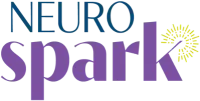How to Get Out of Task Paralysis with ADHD

Table of Contents:
What is Executive Functioning?
Executive functioning is a set of important skills that enable you to get things done. Simply, the adjective “executive” refers to the quality of being suited to put plans and actions into effect. Executive functioning refers to the convergence of all the cognitive processes needed to prepare, execute, and complete tasks. Some executive functions include planning, organizing, initiating, completing, and more. All of the above are areas that are frequently a challenge for autistic and ADHDers. This article will focus on task switching and task paralysis.
What is Task Switching?
Task switching is a mental function that allows the brain to swiftly transition from one task or set of expectations to the next. Naturally, the many competing demands of life require us to switch attention constantly at a moment’s notice. You’d assume that this cognitive flexibility and quick-response time is self-explanatory and second nature, but for people with ADHD, it can pose a major challenge.
Task Switching and ADHD
People with ADHD have differences in attention and working memory, and task switching is a function that requires both. In order to task switch, you have to stop what you were doing or thinking to attend to something else. When the ADHD brain is hyperfocused, putting a stop to the existing task to make space for a new one is hard work, and it can take a longer time to turn off that switch. Differences in working memory in people with ADHD mean that if we abandon what we were doing to switch to a new task, it can be hard to maintain or remember that initial train of thought in order to go back to it later.
For example, if you’re working on a project and your boss gives you a new assignment to prioritize instead, it can be very challenging to get back into the initial project, and we could lose that momentum altogether. Information processing differences with ADHD also mean that it’s difficult to process, adapt to, and act on a new set of information immediately. It takes a while to transition or catch up with competing demands and information.
What’s important to understand about ADHD and task switching is that it’s not just an inconvenient interruption; this process is actually quite stressful for the brain. When the ADHD brain gets overstimulated, overloaded by information, or frustrated from working too hard, it’s common for us to abandon or avoid the task altogether, leading to task paralysis.
If you’re exploring adult ADHD, our guide on ADHD Assessment Near Me will help you find the right assessment and understand the process.
ADHD Task Paralysis
Task paralysis happens when ADHDers are overwhelmed by life’s demands and go into freeze mode. We avoid or procrastinate the to-do list because it requires a complex series of tasks that feel like too much for our brains to execute at that moment. Task paralysis is not laziness. People with ADHD generally want to do the tasks but genuinely cannot bring themselves to do so. Our families, coworkers, and society at large may label this as “laziness” or an “excuse.” ADHDers also grapple with these concepts and internalize this criticism themselves. The truth is, task paralysis can feel absolutely debilitating and disabling. It can lead to some intense feelings of frustration, hopelessness, guilt, anxiety, and more.
Signs of Task Paralysis
Task paralysis can look like depression. A person with ADHD might stay in bed for hours because the number of steps required to initiate their morning routine is overwhelming on its own, let alone going to work, participating in the social world, and living up to current toxic productivity standards. For people without ADHD, getting up, making the bed, brushing their teeth, getting dressed, and making breakfast may come as second nature and routine. Each small action required to complete a task often has to be a conscious and intentional choice for a person with ADHD. Think about the amount of task switching required in simply the first 10 minutes of your day. It’s a lot of effort and a lot of decision-making. In fact, it has been estimated that a person makes 35,000 decisions a day.
It’s easier to scroll on a phone or daydream than it is to get your brain and body to execute a series of tasks. Thinking of that ongoing to-do list is overwhelming for everyone, but for people with ADHD, it can truly feel paralyzing.
Tips for Improving Task Switching in ADHD
Some actionable tips for improving task-switching in ADHD include:
Prioritize
Rank things by order of importance, and whenever possible, try to complete one task before starting a new one.
Reminders and Timers
For example, if we have a clear expectation that in 1 hour we will have to switch to a new topic or assignment, we can mentally prepare ourselves for the switch.
Extra Time for Transitions
For your loved ones, peers, and colleagues with ADHD, please have patience when you’re introducing a new topic or expectation. Give them some extra time to find closure on what they were already doing, and wait until they are ready to receive and respond to new information.
Medication
Many people with ADHD who begin medication describe being able to task-switch efficiently for the first time in their lives. They feel much more in control of what they give their attention to.
Getting Out of Task Paralysis
Practice Self-Compassion
Remember that you are not expected to be productive every moment of every day. Giving yourself permission to have a low-demand period of time where you can just relax is essential. The avoidance-guilt cycle actually contributes even more to task paralysis. Reframing our expectations and reducing the guilt/blame/self-criticism can be precisely what we need to feel empowered to do a task we have been avoiding.
Start Small
You don’t have to commit to doing a project all at once, do it perfectly, or even finish it. But just starting small and taking that initial step could make a big difference. If cleaning the house is overwhelming, maybe you can commit to putting all the empty glasses in the sink. That’s a step. Even a small, contained step could inspire some momentum. Maybe you can commit to sitting at your desk and turning on your computer. That action could be the action that gets you out of task paralysis and even be a catalyst to work further.
Move Your Body
If you are scrolling through your phone in bed and are struggling to put it down, maybe you can physically move to the couch or kitchen table, where you can allow yourself to continue, but in a slightly less comfortable spot. Taking a walk, sitting outside, or going to a library or coffee shop might give you that extra push you need to start a task.
Accountability Partner
It may be helpful to ask a friend or loved one to check in with you about a certain task to gently remind you to do it or hold you accountable to a goal that you have previously agreed upon. Call them and let them know that you are struggling with a certain task. Set up a time for coworking or body doubling with a friend or loved one, where you can do the task while they keep you company. A neurodivergent-affirming coach could also provide this kind of support. There are also free services like Focus Mate where you can schedule body doubling sessions online, and you can schedule sessions in advance as an external commitment to get out of task paralysis and into work mode at a specific time.
Incentivize
Build incentives for yourself that could motivate you to do the task for a reward at the end. For example, set an incentive that after you do the laundry, you can reward yourself by watching your favorite show. After you finish this difficult assignment, you can get a massage. After you make this difficult administrative phone call, you can reward yourself by calling a friend. Buy yourself something nice.
Dopamine-boosting activities
Task paralysis could possibly mean that you are under-stimulated or seeking a dopamine boost. Doing something that is stimulating and gratifying to you may bring you back to your ideal baseline to complete tasks that are not as fun. For example, turning on some music, getting some needed sensory stimulation, or engaging in a preferred hobby can restore your energy and help you feel like you have the “spoons’ ‘to do the things you need to do.
Accommodations
You may decide to request formal accommodations to create some adjustments at work around a tendency towards task paralysis and task avoidance. You may pursue accommodations such as extra time, a support person to check in with you, reminders, support with organization/time management, task separation, on-site job coaching, and more.
Take the first step toward truly understanding your ADHD with our detailed guide for adults: ADHD Assessment Near Me.

Dani Rodwell, LCSW
One Spark Can Light a Fire
Diagnosis can be the catalyst for significant momentum. It can represent a turning point for your life, where you can move forward equipped with new knowledge about yourself and a new framework to guide you in your journey.
A formal assessment provides an incredible opportunity to gain knowledge about who you are and how you see the world.



